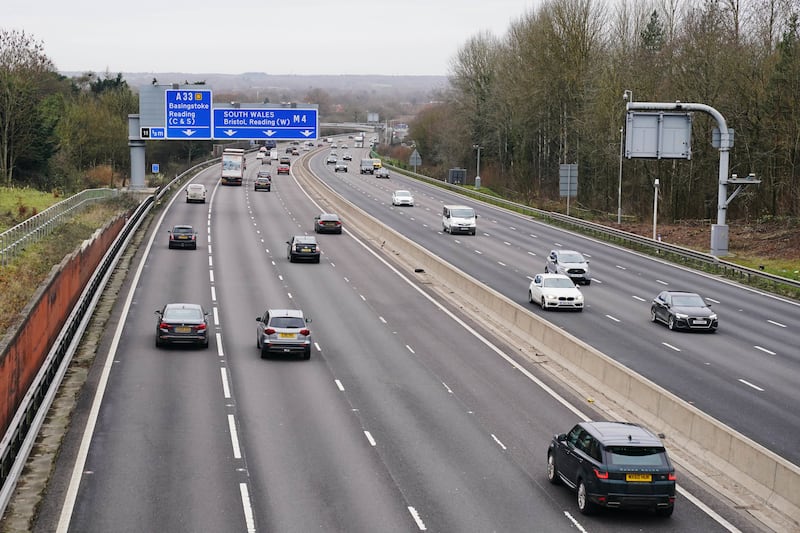More than 180 people were killed in road traffic collisions in Ireland in 2023, marking a nearly 20% rise in fatalities from the previous year.
Provisional road traffic collision figures show 184 people died in 173 fatal crashes in 2023, compared to 155 deaths in 149 collisions in 2022.
This represents an increase of 29 deaths – or a 19% rise – in road deaths compared to 2022 figures.
The statistics were published by the Road Safety Authority (RSA) on Monday, following an analysis of provisional fatal collision reports from An Garda Siochana.
The majority of fatalities – 78% – were male and 22% were female, while over a quarter of those killed were aged 16 to 25 – compared to 16% in 2022.
The number of pedestrian fatalities – 44 – has also risen since 2022. The last time there was a higher number of pedestrian fatalities was in 2011.

Despite lower traffic volumes during the night, almost half of fatalities occurred between 8pm and 8am, compared with 35% in 2022.
Just under a fifth of those killed in collisions were passengers, with 34 passengers being killed in 2023.
Of the 184 road deaths in 2023, 69 were drivers, 44 were pedestrians, 34 were passengers, 26 were motorcyclists, eight were cyclists and three were e-scooter users.
Compared to 2022, there has been an increase in fatalities among all road user groups.
Tipperary, Dublin, Cork, Galway and Mayo were the counties that recorded the highest number of deaths, collectively accounting for 39% of the total fatalities.
Minister of State at the Department of Transport, Jack Chambers, said 2023 had been “a heart-breaking and devastating year on Irish roads”.
He added: “Our thoughts are with all those impacted as we head into a new year.

“We were able to progress a number of important reforms in 2023 which are specifically targeted at the lifesaver offences which we know are the main contributors to fatal road collisions.
“The Road Traffic Bill received Cabinet approval in December and we will be working to have this essential piece of legislation progressed through the Dail in early 2024.
“Work is well under way on a number of other initiatives in partnership with other Government departments and agencies to be delivered throughout this year.
“I would also like to pay tribute and special thanks to our emergency services and first responders who do incredible lifesaving work in the most challenging circumstances.”
Liz O’Donnell, chairwoman of the RSA, said it has been “a difficult year in road safety”.
She added: “People are carrying huge grief with them; a grief that doesn’t go away and a void that cannot be filled in their lives.
“Any one life lost is one too many.

“We must do more, and I welcome the proposed introduction of a national strategy on camera-based enforcement which, I understand, will be prioritised in 2024.”
RSA chief executive Sam Waide said weekends, late nights and early mornings have been high risk periods throughout the year.
“Despite lower traffic volumes, these timeframes feature high numbers of collisions,” he said. “The evidence suggests that these periods present greater risks in terms of driver behaviours like drink and drug-driving and fatigue.
“We are targeting these behaviours with new awareness and education initiatives, such as the Say It campaign which commenced two weeks ago.”
Chief Superintendent Jane Humphries, of the Garda National Roads Policing Bureau, said Gardai have “remained focused” on tackling offences known to cause fatal crashes.
“This year, Gardai conducted over 87,700 checkpoints,” he said. “Some 7,707 people were arrested on suspicion of driving under the influence of an intoxicant.
“In the region of 200,000 speeding offences were detected, over 5,300 fixed-penalty notices were issued for not wearing a seat-belt, and more than 18,800 motorists were fined for using their mobile phone.
“These figures demonstrate that while the majority of road users support our collective work to keep people safe by adhering to the rules of the road, there are still plenty that need to reflect on their driving behaviours.
“There is room for improvement. As we head into 2024, we must all pay close attention to our collective responsibility to make Irish roads safer and to reduce the number of lives lost and people seriously injured in road traffic collisions.”






